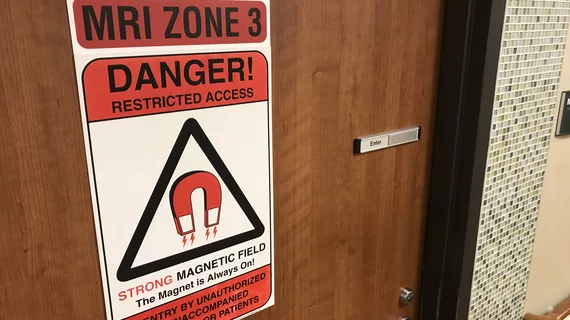The American College of Radiology is seeking input on new MRI safety guidelines
The American College of Radiology is asking for input on the newly updated draft of its MRI safety guidelines.
On March 14, the ACR requested additional commentary from anyone involved in the MR community, including radiologists, medical physicists, technologists and other stakeholders, pertaining to the latest version of the ACR Manual on Magnetic Resonance Safety. The ACR indicates that the most recent updates contain “substantial new content and safety recommendations.”
“The intent of the revised manual is to addresses new challenges that face contemporary MR practices, while at the same time increasing readability and instructional value,” said Robert E. Watson Jr., MD, PhD, professor of radiology at the Mayo Clinic and chair of the ACR Committee on MR Safety.
The manual has been reorganized into chapter format and now includes more pictures with highlighted key points for better clarity, according to Watson.
Additional changes to the draft manual pertain to MR personnel training levels, staffing recommendations in various settings, “full stop/final check” protocols and other standard operating procedures. It also contains updated recommendations on safety zones and new information on objects, equipment and medical devices that could present risks to patients and/or staff within the MRI suite.
The previous version contained more than 140 recommended performance statements on the topic.
Although the draft is currently embargoed, the ACR has made it available for review and public comments. They have provided a submission form that can be found here.
The public comment period is set to expire on April 14, 2023.
To learn more, click here.

